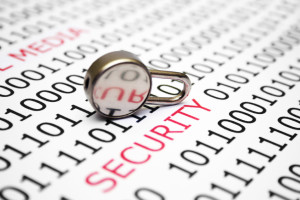Technology is prominent in our society, so it is important to know how to spot malicious activity on your computer as well as potential hackers. Below are 11 ways to recognize if your system is in jeopardy.
1) Fake antivirus messages
Although this tactic isn’t as common as it used to be, fake antivirus messages can cause damage to your computer. Unfortunately, by the time users see the fake message or even attempt to stop the fake scan, the damage is already done. Additionally, the program can act as though it is a real antivirus protector, and trick people into buying the product. The hackers then gain access to personal financial information. In order to get rid of the malicious software, power down your computer as soon as possible. After your computer is off, reboot in Safety Mode. Once in Safety Mode, you can try and uninstall the fake antivirus software. After this is complete, restore your computer to a state previous to the fake software attack. Finally, do a complete virus scan with a trusted antivirus program.
2) Unwanted browser toolbars
If you start to notice unwanted or unexpected toolbars in your browser, those could lead to trouble. If this is the case, remove all unwanted toolbars and complete a virus scan.
3) Redirected Internet searches
Often times, hackers are paid to redirect you to a website other than the one you intended to go to. To avoid this, you can do a quick search with common terms and if the results are unrelated to your search, that is a sign of foul play. If this happens to you, follow the instructions above and remove any bogus toolbars and programs from your computer.
4) Frequent random popups
If you start to receive popups from websites that don’t usually have them, that could be a sign that your computer has been hacked. This is usually caused by one of the above three factors, and can be dealt with by removing suspicious toolbars, programs and completing a full virus scan.
5) Your friends receive fake emails from your email account
Email hacking isn’t as popular as it was ten years ago, but still happens occasionally. If bogus emails are sent to only some of your contacts, usually your computer is still safe. However it may be good to do a virus scan just in case.
6) Your online passwords suddenly change
If your online passwords suddenly change, that’s more than likely a sign that you’ve been hacked. This usually happens if you’ve responded to a bogus email or link asking you to log on to your account. The hacker then obtains your logon information and can use it to try and scam your friends or acquaintances. If this happens, immediately reach out to your contacts to let them know your account has been jeopardized. Then, change your account information. This can be embarrassing, but is a common occurrence and people should understand the situation once you explain it.
7) Unexpected software installs
When an unwanted and unexpected program is installed on your system, this is a sign that your computer’s security has been compromised. Most malware programs are Trojans or worms, which means they usually install themselves like normal programs. You have to be cautious when installing even trusted programs because sometimes the malware programs are installed with them. To deal with unwanted installations, read over license agreements carefully when installing new programs. Additionally, you can disable programs you don’t recognize by monitoring your installed program list. A suggested program to use to monitor your system’s programs is Windows Autorun.
8) Your mouse moves between programs and makes correct selections
Sporadic mouse movement usually happens when you have hardware issues, but if your mouse moves on its own and makes selections to run particular programs or redirect you, your system is definitely at risk. Most often, hackers will break into your system and wait until it has been idle for a while (usually after midnight) to move in and steal your information. It is crucial to take action if this happens to your system, because hackers can steal vital financial information. If you notice your computer startup one night, try to observe what information the hacker is trying to gain access to. Take pictures to document the situation, and then immediately turn off your computer and disconnect it from the network or wireless router. From another, trusted computer, change all of your logon names and passwords. Check you bank account information, transactions and history. Then call in the professionals, because a situation like this requires expert help. It may also be a good idea to contact your bank and let them know of the situation.
9) Your Antimalware Software, Task Manager, or Registry Editor is disabled and can’t be restarted
If your antivirus software has been disabled and you’re unable to restart it, this is a sign of malicious activity. To deal with this, restore your computer to a time when your antivirus software was working.
10) Your bank account is missing a substantial amount of money
When hackers steal money, they steal a lot of it. They’ll try to transfer everything to a foreign exchange or bank. This process usually starts when you respond to a fake phish from your bank, and the hackers are then able to obtain your bank information. If you find yourself in this situation, it is important to contact your bank right away. Most times, the institution will replace the stolen funds and investigate the situation. To avoid this from happening to you in the future, set up bank alerts to your cell phone that will inform you of any transactions or information changes.
11) You get calls from stores about nonpayment of shipped goods
This could be a sign that one of your accounts is in jeopardy. If you receive calls of nonpayment for goods, this usually means a hacker stole your information and shipped goods to a location other than your house. If this happens, change all of your logon names and passwords, report the situation to authorities and monitor your credit. It may take some time to undo the damage, but usually most of the bogus transactions in your name can be cleared. Additionally, be cautious and think about how your information could have been compromised to begin with.
With these 11 signs and solutions, you can protect your information and computer’s system. More information on how to resolve potential hacking situations can be found here.
Need IT support to monitor and protect your system?
If so, contact Stratosphere networks, and let us see what we can do for you. We provide a broad range of IT services, including: 24/7 remote monitoring, proactive desktop and server management, email and virus protection, and backup and recovery, to name a few. For more information, call us today at at (877) 599-3999, or click here to use our contact form.




Pingback: IT Support- Glenview IT Support- Stratosphere Networks
Pingback: Converged Systems Blog